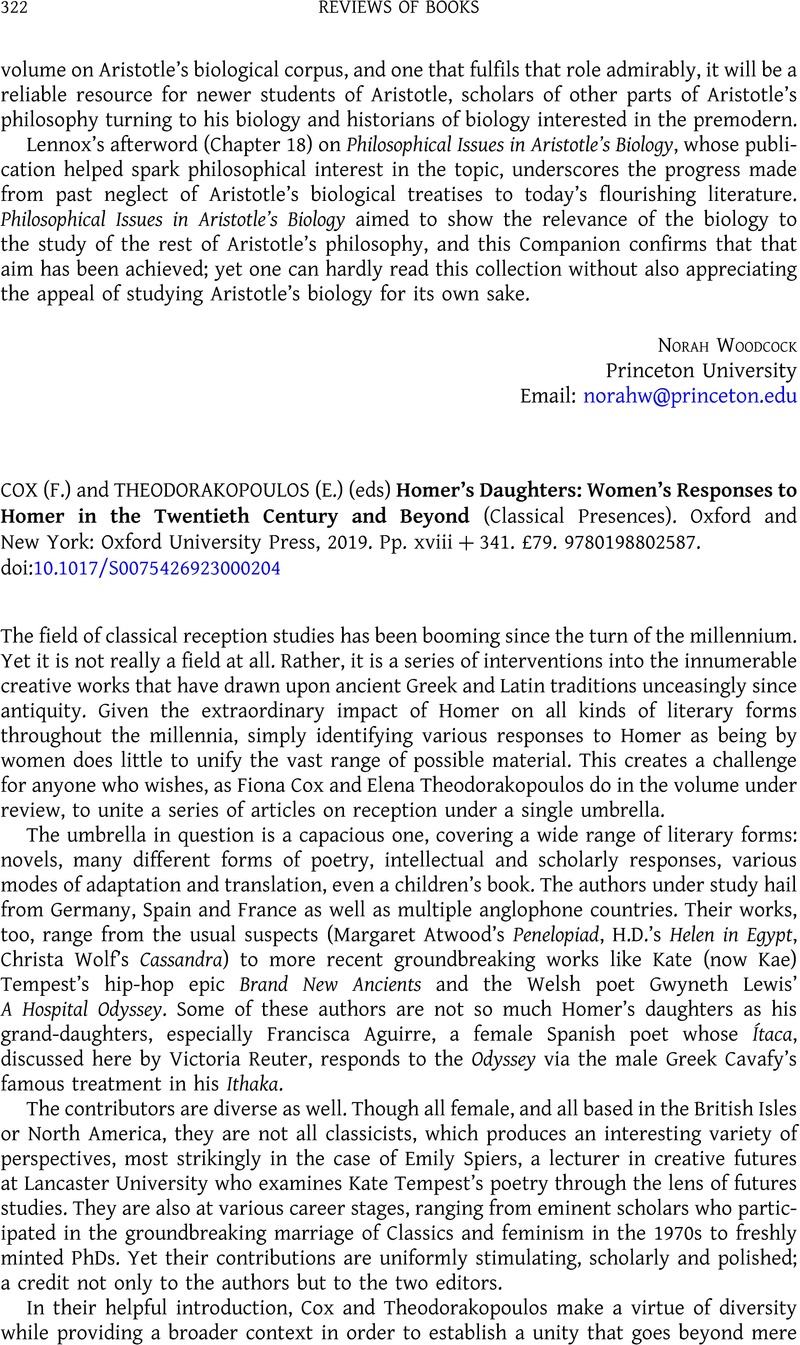No CrossRef data available.
Article contents
(F.) COX and (E.) THEODORAKOPOULOS (eds) Homer’s Daughters: Women’s Responses to Homer in the Twentieth Century and Beyond (Classical Presences). Oxford and New York: Oxford University Press, 2019. Pp. xviii + 341. £79. 9780198802587.
Review products
(F.) COX and (E.) THEODORAKOPOULOS (eds) Homer’s Daughters: Women’s Responses to Homer in the Twentieth Century and Beyond (Classical Presences). Oxford and New York: Oxford University Press, 2019. Pp. xviii + 341. £79. 9780198802587.
Part of:
Reception and history of scholarship
Published online by Cambridge University Press: 11 April 2023
Abstract
An abstract is not available for this content so a preview has been provided. Please use the Get access link above for information on how to access this content.

- Type
- Reviews of Books
- Information
- Copyright
- © The Author(s), 2023. Published by Cambridge University Press on behalf of the Society for the Promotion of Hellenic Studies


